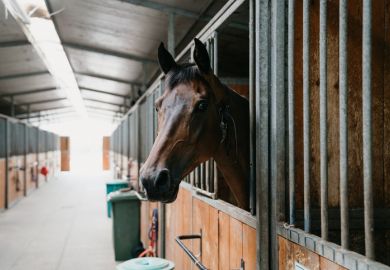We humans have an ambivalent attitude towards nature. We love it in its place but hate it when it invades our fields, gardens or worse still our homes. When this happens we enter Dalek mode - Exterminate, exterminate, exterminate.
Most rational people accept that our war against nature is one that we can never win. Even so, we invest huge sums of money looking for ever more potent weapons to further the fight. For the past couple of hundred years a wide variety of toxic chemicals have been the main weapons in mankind's arsenal and, although they have had undoubted benefits, the big cost is that some accumulate in the environment where they harm wildlife and ultimately ourselves.
If the dangers are well known and legislators are prepared to regulate the release of chemicals into the environment, is there still a problem? Mark Winston, in his book Nature Wars, firmly believes there is. For people are fickle. We may deplore the application of chemicals to fruit but we reject an apple that has slight skin blemishes. How do we reconcile individual behaviour with collective responsibility?
Winston appears to be neutral; he does not advocate chemical control, biological control or no control as alternative solutions; instead he highlights the controversial issues in all cases and looks for compromises. His book is a strange mixture, not particularly light but rather compulsive reading that made me think a bit more about the moral issues, rather than the ecological or agricultural ones with which I am more familiar. It is totally oriented to the North American experience but is by no means exhaustive even in that context. For example, he makes no mention of the imported red fire ant and Africanised bee problems. Despite this, I recommend it to all those concerned with green issues, be they scientist, student or layman.
In the second of ten chapters "Gypsy moth", Winston dives into a key case study. During periodic population explosions the moth's caterpillars can defoliate whole regions of temperate forests, with severe economic, ecological and aesthetic consequences. When the pest was introduced to North America more than 100 years ago, there was public demand for its extermination, but when spraying programmes were initiated there were local outcries concerning poisoning cases, with one newspaper editor urging his readers to "shoot on sight" the workmen involved. In the 1930s and 40s less obviously toxic but more insidious DDT-type sprays were tolerated until their full ecological consequences were realised. Forest administrators now believe they have a perfect remedy: the pathogenic bacterium Bacillus thuringiensis, which is harmless to warm-blooded animals but fatal to caterpillars, is sprayed over vast areas. However, in many regions protests against its application rival those of the early chemical protesters. People fear that when applied in sufficiently high doses, these bacteria might shift host with disastrous direct or indirect consequences for humans, and who knows for sure, maybe the protests are not without good reason.
And so the book goes on developing this theme of human paranoia concerning pests, with chapters on relatively harmless pests: "Weeds"; "The worm in the apple", the battle against the Codling moth; the role of insect pheromones, "Nature's perfume; and a chapter on genetically modified organisms - "Frankenstein plants". The last is included because pest control was one of the driving forces behind the development of this increasingly controversial field.
In the final chapters Winston foresees more powerful but more targeted methods of chemical, biological and genetical pest control subject to increasing regulation. He recognises that his plea for humanity to tread the world with a lighter step can be achieved only when we forgo some of our sanitised existence. We can tinker with regulations but the big breakthrough will come when everyone can tolerate a worm in their apple, an aphid on their lettuce or a cockroach in their kitchen.
Graham Elmes is a senior principal scientific officer, Institute of Terrestrial Ecology, Natural Environment Research Council.
Nature Wars: People vs Pests
Author - Mark L. Winston
ISBN - 0 674 60541 1
Publisher - Harvard University Press
Price - £16.50
Pages - 210
Register to continue
Why register?
- Registration is free and only takes a moment
- Once registered, you can read 3 articles a month
- Sign up for our newsletter
Subscribe
Or subscribe for unlimited access to:
- Unlimited access to news, views, insights & reviews
- Digital editions
- Digital access to THE’s university and college rankings analysis
Already registered or a current subscriber?



